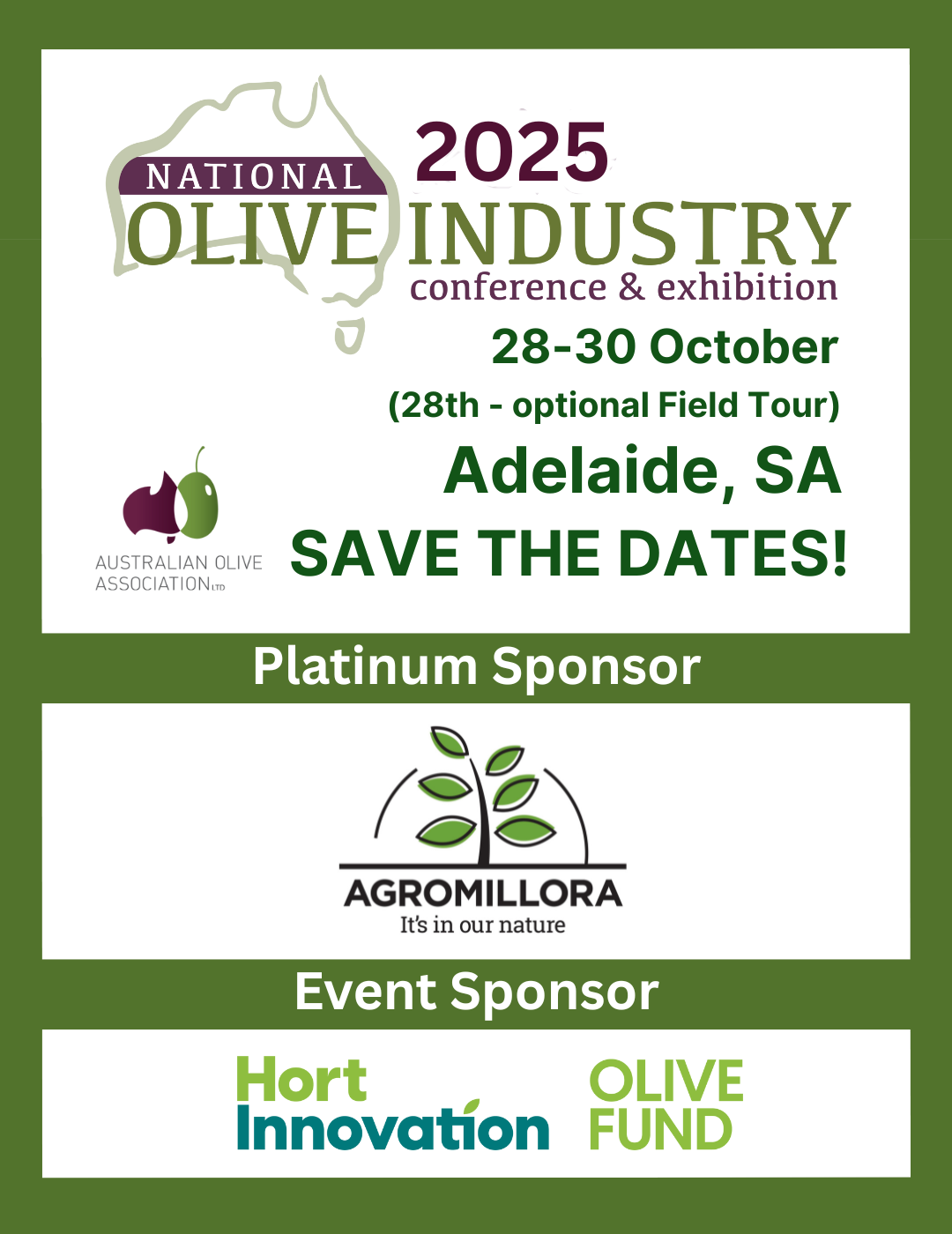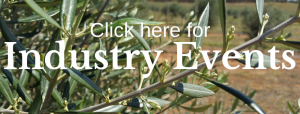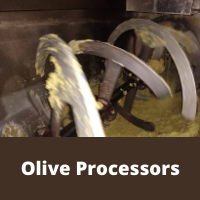Jonathan West, Building a Healthy Ecosystem
Competition within any industry promotes innovation and cost reduction. But some competition improves conditions for all industry participants and lifts the industry as a whole, while other types of competition become destructive and retard the industry’s growth and development. This presentation explores which conditions encourage healthy cooperation and competition, and which threaten to undermine it.
Andrew Burgess, Olive Industry Retail Consumer Market Update
A summary of market & consumer trends in the supermarket cooking oil category and the important role extra virgin olive oil plays in this segment.
Professor Andrew Robson, Alex Schultz, Outcomes of the Australian Tree Crop Mapping Project
The presentation with Alex Shultz highlights the main findings from a three year research project on the evaluation of remote sensing (satellite and airborne) for measuring tree health, yield forecasting and water stress. The later includes the assessment of a range of in field sensors including soil moisture, dendrometers, sap flow meters, canopy temperature and relative humidity to determine those most accurate and reliable for measuring early water stress. The influence of induced water stress on yield and oil content was also assessed. Finally, the presentation demonstrates the national mapping of all olive groves.
Craig Leaf-Wright, Andrew Taylor, 5-35 kgs Per Tree in 3 Years – Olives NZ Focus Grove Project
The project aimed to increase the production of existing groves to meet the increasing demand for New Zealand Extra Virgin Olive Oil. Areas targeted were disease management, canopy management and nutrition. A second outcome is to develop alternate more organic approaches to production.
Paul Miller, Andrew Taylor, The Biennial Bearing Challenge
Biennial bearing is a relatively common reason given for a lack of crop. In this session we discuss the definition of biennial bearing and factors that influence it, along with management tools that can be used to minimise occurrence. Such factors include climate, weather, pruning, disease management, harvest timing, nutrition and irrigation management.
Andrew Taylor, Mechanical Harvesting of Table Olives
Mechanical harvesting for table olives can be successfully achieved when crops are grown on trees that are engineered for mechanical harvesting and the machinery is adequately modified so that no bruising or blemish occurs. Successful harvesting requires optimising tree structure, fruit location, detachment force, fruit size, crop load, fruit maturity, machinery padding and fruit handling systems.
Anthony Kachenko, Michael Southan, Olive Levy RD&E Priority Setting Mini Workshop
Anthony Kachenko provides a brief overview of the new advice mechanism being developed for PIBs to inform HIA of R,D&E priorities. Michael Southan seeks industry feedback on the current olive industry challenges and what the priority areas are for future olive levy fund allocation and what existing resources can be tapped into.
Westerly Isbaih, Working with Distributors to Service the Foodservice Sector
The aim of this presentation is to get new producers to the industry to ask some important questions about their business strategy and to hopefully supply some helpful tips and ideas to assist them.
Craig Leaf-Wright, An Overview of the New Zealand Olive Industry
Craig presents an overview of the New Zealand olive industry.
Robert Spooner-Hart, IPDM Update
The Australian olive industry has embraced Integrated Pest and Disease Management (IPDM). However, a number of medium- size and smaller “boutique” and organic growers particularly experience difficulty managing their pest and disease problems. In the past few seasons, the pest and disease situation been exacerbated by impacts of climate change, such as drought, bushfires and La Niña events, as well as by tree health and management. There continues to be biosecurity threats from local and exotic species. This presentation addresses practical application of IPDM and Biosecurity measures, particularly discussing information available to growers to assist them in successfully implementing IPDM.
Craig Elliot, Xylella Update
Xylella fastidiosa is regarded as Australia’s number 1 plant biosecurity threat. Australia is free of Xylella but, like many biosecurity threats, it could only be a single plane or sea container from arriving on our shores. This presentation will provide an update on the situation overseas with Xylella and outline some of the local and international research efforts working to improve our understanding of this disease and better prepare Australia for its arrival.



